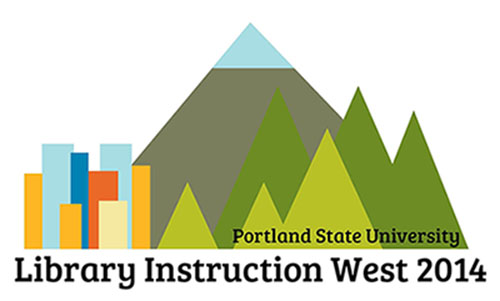Low-Fi Planning for Hi-Fi Impact: A Story About Creating Open, Sustainable Information Literacy Tutorials in a Complex Collaborative Environment
Location
Portland State University, Portland, Oregon
Start Date
7-25-2014 1:15 PM
End Date
7-15-2014 2:14 PM
Subjects
Information literacy -- Study and teaching, Library instruction
Description
This presentation tells the story of the University of Alberta Libraries’ new interactive information literacy tutorials for junior undergraduates. We focus on sharing our intentionally low-fi approach to the project and our efforts to understand the impacts our tutorials could have. Our story follows our protagonists, a small team of librarians and an instructional designer. Our antagonist is the increasing unsustainability of traditional synchronous library instruction, which places heavy demands on librarians’ workloads while simultaneously falling short of our aspirations to bring high-quality instruction to as many students as possible. Will we succeed not only at creating sustainable and freely open e-learning objects, but also at transforming our instructional practices and translating our deep expertise in face-to-face instruction to the online context? Through this presentation we’ll share our most important insights as well as the practical approaches that helped us make decisions within a complex project.
Persistent Identifier
http://archives.pdx.edu/ds/psu/14555
Low-Fi Planning for Hi-Fi Impact: A Story About Creating Open, Sustainable Information Literacy Tutorials in a Complex Collaborative Environment
Portland State University, Portland, Oregon
This presentation tells the story of the University of Alberta Libraries’ new interactive information literacy tutorials for junior undergraduates. We focus on sharing our intentionally low-fi approach to the project and our efforts to understand the impacts our tutorials could have. Our story follows our protagonists, a small team of librarians and an instructional designer. Our antagonist is the increasing unsustainability of traditional synchronous library instruction, which places heavy demands on librarians’ workloads while simultaneously falling short of our aspirations to bring high-quality instruction to as many students as possible. Will we succeed not only at creating sustainable and freely open e-learning objects, but also at transforming our instructional practices and translating our deep expertise in face-to-face instruction to the online context? Through this presentation we’ll share our most important insights as well as the practical approaches that helped us make decisions within a complex project.


